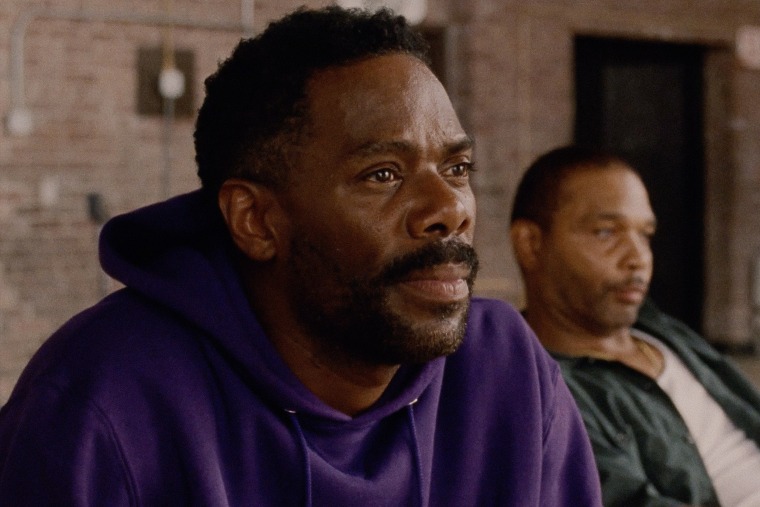Oscar-nominated actor Colman Domingo has turned a personal belief into a lifelong mission, he recently shared, and it’s become sort of North Star for him.
“Politics doesn’t work. Religion is too eclectic. But art, art just might be the parachute that saves us all,” Domingo said on June 26 at the Brooklyn premiere of “Sing Sing,” his upcoming movie.
Domingo was echoing the words of Rhodessa Jones, who works with incarcerated women in the Bay Area, helping them workshop personal stories into plays, which they can later perform.
This, similarly, is the story of “Sing Sing,” which will be released in theaters on July 12.
Domingo plays Divine G, a man who is incarcerated at Sing Sing Correctional Facility, a maximum security prison located on the east bank of the Hudson River, roughly 30 miles north of New York City.
The film tells the story of a group of inmates who participate in an arts program that uses theater as a form of therapy to help them regain control of their lives.
The story is based on the real-life Rehabilitation Through Arts (RTA) program, in operation at Sing Sing since 1996.
RTA uses theater, dance and music, among other art-related workshops to help reduce recidivism, which is the tendency to relapse into criminal behavior after being released from prison.
According to the program, in almost three decades it has been successful in breaking the cycle of incarceration: less than 3% of RTA alumni return to prison.
This is notably lower than the nationwide recidivism rate, which RTA estimates is over 60% of people returning to prison within three years of release.
“It’s been a program that was established to help people get more in touch with their feelings and truly get some rehabilitation,” Colman’s character says in the movie, during a clemency hearing for his conviction of 25 years to life.

Director Greg Kwedar said at the Brooklyn premiere that he worked on “Sing Sing” for eight years. He called it “a movie at its core about people” and the wholeness of being human.
One of those people is Clarence Maclin, who was incarcerated at the maximum security prison for 15 years.
Maclin co-stars with other formerly incarcerated actors along with Domingo and Paul Raci, who was nominated in 2021 for his supporting role in “Sound of Metal,” a drama about a drummer who loses his hearing.
One of the recurring themes of “Sing Sing” is self-determination. Both Domingo and Maclin’s characters will have to come to terms with the consequences of their actions: Is every decision they make predetermined by their prison sentences? Or do they have the power to make positive changes in their lives?
Viewers will remember Domingo as a 2024 Oscar nominee for his leading role in the biopic “Ruskin,” which tells the story about the openly gay civil rights leader Bayard Ruskin. He organized the 1963 march on Washington, D.C., where Dr. Martin Luther King, Jr. delivered his iconic “I Have a Dream” speech.
Domingo grew up in Philadelphia and went to high school with Oscar-winning actor Will Smith. He said in an interview with actress Tessa Thompson that his father is from Belize, with family from Guatemala. At the premiere, he told viewers that the movie is a very New York story, based on the community that has become his home.
“I made New York my home for 16 years and many of my cast mates, my comrades, my brothers are from New York. And a lot of them from this borough,” he said. “So it’s even more important that we’re having this premiere here where their families are here. So, it’s for them.”
This is the case for Sean Dino Johnson. Born and raised in Queens, he is now an RTA board member and an alumnus of the Sing Sing program. He served 15-years for a drug-related charge, and viewers will see him costar in the movie.
“RTA has been Sing Sing’s best kept secret for years,” he said at the premiere. “When you walk out, I want you to remember the resilience of the human spirit, the power of humanity.”
Johnson’s character describes the in-prison theater program as a space where inmates can enjoy the things that aren’t in their reality and can “become human again.”
Arturo Conde
Arturo Conde is an editor and a bilingual freelance journalist. He writes for La Opinión A Coruña and has been published in Fusion, Univision and City Limits.





